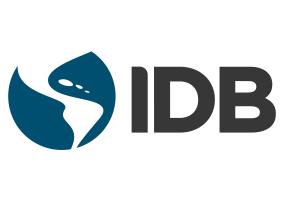

Bridging Data Gaps Through Regional Cooperation: Enhancing Statistical Visibility of Diverse Population Groups in Latin America and the Caribbean
Inter-American Development Bank
This commitment aims to develop targeted recommendations to enhance the collection, production, and dissemination of high-quality statistical data on diverse population groups. Tailored for National Statistical Offices (NSOs) in Latin America and the Caribbean, these recommendations will focus on improving the accuracy and representativeness of data on Indigenous Peoples, Afro-descendants, and LGBTQ+ populations. Additionally, the commitment will foster regional collaboration by encouraging the exchange of best practices and lessons learned, ultimately strengthening NSOs’ technical capacities and addressing critical data gaps that hinder effective policymaking.
The commitment addresses the need to improve the quality of statistical data on diverse population groups in Latin America and the Caribbean, focusing particularly on Indigenous Peoples, Afro-descendants, and LGBTQ+ individuals. While some progress has been made in data collection for these groups, significant challenges remain in terms of data accuracy, representativeness, and coverage. These challenges are especially pronounced for LGBTQ+ individuals, as the inclusion of sexual orientation and gender identity variables in national statistics is relatively recent and underdeveloped. Through regional cooperation, National Statistical Offices (NSOs) can more effectively meet the demand for reliable, high-quality data to inform policy decisions that contribute to reduce structural discrimination.
This commitment will be implemented through a structured, three-phase process. First, a comprehensive assessment will identify good practices and challenges that National Statistical Offices (NSOs) face in producing reliable data on diverse populations. This phase will involve expert consultations, and technical evaluations in addition to pilot projects to test innovative methodologies and develop tools, instruments, and other resources to improve data production. Second, a series of virtual and in-person workshops will help to collaboratively develop a systematization of good practices and lessons learned and, ultimately, two technical recommendations documents. Lastly, these recommendation documents will be distributed through regional networks to expand access to the knowledge generated. This collaborative approach is designed to foster sustainable improvements in the availability and quality of statistical data on diverse populations across Latin America and the Caribbean.
The success of this commitment will be monitored through the publication and dissemination of technical recommendation documents, which will serve as the primary means of verification. These documents will reflect the collective knowledge and experiences of participating NSOs.
